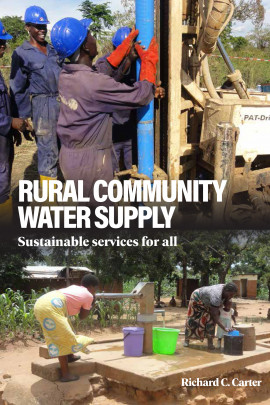by Professor Richard C. Carter
Many hundreds of millions of rural people – the exact number is not known, and it is immaterial, except that it probably lies between one and two billion – experience inadequacies in the supply of the water which they use for drinking and other domestic uses.
These inadequacies are partly reflected in the ‘normative criteria’ as defined by the human right to water which apply to water services globally. These criteria ask whether and to what extent water services are available, accessible, affordable and acceptable, and whether their quality meets national or international standards. They also highlight the importance of cross-cutting criteria (non-discrimination, participation, accountability, impact, and sustainability).
Continue reading “Rural Community Water Supply: Sustainable Services for All”


